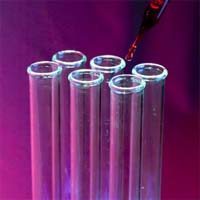SMRP Still Among Best Diagnostic Biomarkers for Mesothelioma
Chinese researchers say soluble mesothelin-related peptides (SMRP) in lung fluid is still one of the best biomarkers for mesothelioma, even if it sometimes produces false positives.. SMRP has been studied extensively as a way to help diagnose mesothelioma. The most popular test to check levels of SMRPs in the body is a blood test called MESOMARK. In recent years, other biomarkers for mesothelioma have also emerged. But SMRPs are not just in the blood. A new meta-analysis of SMRPs from pleural effusions finds that they have a valuable place among top biomarkers for mesothelioma. Biomarkers for Mesothelioma: SMRPs and Others Malignant mesothelioma is a type of cancer that starts on the membranes around the lungs, heart or abdomen. SMRPs are…






